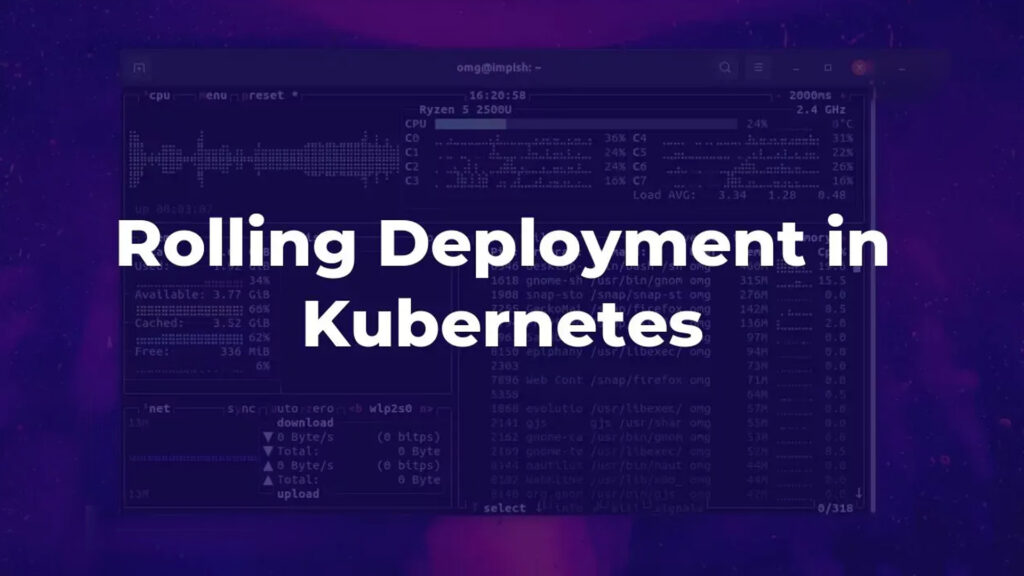Case Study
Home » Rolling Deployment in Kubernetes for Microservices
Rolling Deployment in Kubernetes for Microservices
Problem Statement
A technology company running a microservices-based platform experienced service disruptions and increased risk during application updates, impacting user experience and operational stability. The company aimed to implement a rolling deployment strategy in Kubernetes to reduce risk, minimize downtime, and ensure seamless updates across its microservices architecture.

Challenge
The key challenges in adopting a rolling deployment approach included:
- Service Disruption: Traditional deployments caused brief outages or degraded performance during updates.
- Coordination Complexity: Managing updates across numerous interdependent microservices without breaking functionality.
Risk Mitigation: Ensuring new versions were stable before fully replacing older instances, with a safe rollback option if issues arose.
Solution Provided
The solution utilized Kubernetes’ rolling deployment capabilities, enhanced by Helm for package management, to update microservices incrementally and reliably. The system was designed to:
- Minimize Downtime: Gradually replace old pods with new ones, maintaining service availability throughout the process.
- Reduce Risk: Validate each new instance before proceeding, allowing early detection of issues.
- Simplify Management: Streamline deployment workflows for multiple microservices with reusable Helm charts.
Development Steps

Data Collection
Analyzed the existing microservices architecture and deployment pipeline to identify dependencies and update requirements.

Preprocessing
Configured Kubernetes clusters with appropriate resource limits and health checks to support rolling updates.

Model Development
Defined rolling deployment strategies in Kubernetes manifests and created Helm charts to package and deploy microservices, specifying update parameters like maxUnavailable and maxSurge.

Validation
Executed rolling updates across production microservices, leveraging Kubernetes’ orchestration to replace pods incrementally while Helm managed versioning and rollbacks.

Deployment
Implemented the solution across the retail chain, integrating it with inventory management systems for real-time synchronization.

Continuous Monitoring & Improvement
Established a feedback loop to refine AI models and adapt to new product categories and store layouts.
Results

Seamless Deployment
Achieved zero downtime during updates, with users experiencing uninterrupted service across all microservices.

Reduced Risk
Incremental rollouts caught issues early, decreasing deployment-related incidents by 60%.

Faster Updates
Rolling deployments shortened update cycles by 50%, enabling quicker delivery of new features and fixes.

Improved Rollback Efficiency
Helm’s versioning and Kubernetes’ rollback capabilities reduced recovery time to under 2 minutes in case of failures.

Enhanced Operational Stability
Consistent pod health checks and phased updates increased overall system reliability by 30%.